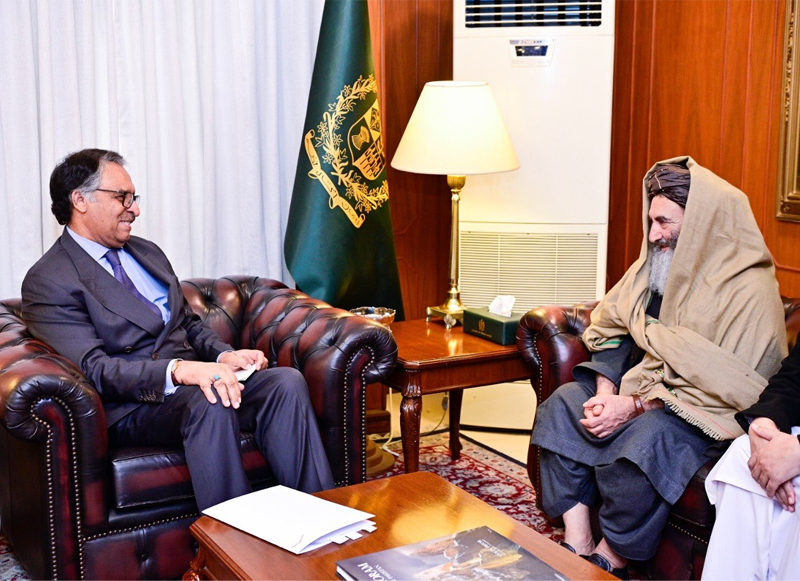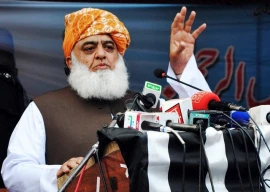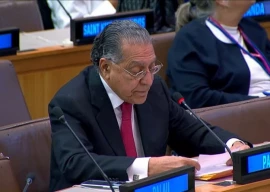
A senior aide of Afghan Taliban supreme leader held talks with Pakistani authorities, including the caretaker foreign minister, here on Wednesday amid simmering tensions between the two countries over the cross-border terrorism.
Haji Mullah Shirin, the governor of Kandahar, and Deputy Head of Military Intelligence and Strategy of Afghanistan, is the first senior Taliban figure to have travelled to Islamabad in recent months. Mullah Shirin led the Afghan side at the Pakistan-Afghanistan Joint Coordination Committee (JCC).
Special Envoy on Afghanistan Ambassador Asif Durrani led the Pakistani side. Official sources said that their talks lasted over three hours where issues ranging from the banned Tehreek-e-Taliban Pakistan (TTP), border security, deportation of undocumented Afghans and others issues were discussed.
Separately, Mullah Shirin also met with Caretaker Foreign Minister Jalil Abbas Jilani. Statements released both by Pakistan and Afghanistan did not touch the thorny issues explicitly as there seemed deliberate effort not to further deepen tensions.
But the Pakistan foreign minister did mention the issues of mutual concerns. According to the statement issued here by the Foreign Office, Jilani and Shirin exchanged views on “key issues of mutual concern”, including “peace and security”, as well as people-to-people contacts.
FM @JalilJilani received Mullah Shirin, Governor of Kandahar today.
— Spokesperson 🇵🇰 MoFA (@ForeignOfficePk) January 3, 2024
He reaffirmed Pakistan’s commitment to continued engagement & mutually beneficial ties with Afghanistan.
The two sides agreed to continue high-level engagement and dialogue to further strengthen bilateral… pic.twitter.com/nzkiyohfcl
The foreign minister reaffirmed Pakistan’s commitment to continued engagement and mutually beneficial ties with Afghanistan. He also underscored the importance of addressing all issues of concern to harness the full potential for regional trade and connectivity.
The visiting Taliban leader, according to the Foreign Office, appreciated Pakistan for the generous support extended to millions of Afghans for over four decades and agreed to continue high-level engagement and dialogue to further strengthen bilateral relations.
Earlier, the Afghan delegation, led by Haji Mullah Shirin, participated in the 6th session of Pakistan-Afghanistan JCC. In the meeting, the two sides discussed coordination mechanisms to facilitate cross-border movement with a view to promoting people-to-people contacts.
A separate statement issued by the Afghan Taliban spokesperson said that the JCC meeting, which alternatively meets in Kabul and Islamabad, the participants would discuss and taker decisions regarding the resolutions of potential conflicts.
Read also: Pak, TTP were close to a deal, claims Afghan FM
“During this meeting, as a follow-up to previous sessions, participants will engage in discussions and make essential decisions concerning the resolution of potential conflicts along the Durand Line and the establishment of essential facilities for people on both sides,” the statement said.
Tensions between the two neighbours have been building up in recent months because of Kabul’s failure in reining in the TTP and its affiliates, which are increasingly targeting the Pakistani security forces.
Pakistan has repeatedly demanded decisive action against the terrorist sanctuaries but the Afghan Taliban government remains adamant that it was not allowing the Afghan soil to be used against the neighbouring country.
Ahead of the Afghan Taliban delegation visit, the acting Afghan defence minister blamed “foreign powers” for terrorism in Afghanistan. Mullah Yaqub claimed that Tajik and Pakistani nationals were involved in terrorist attacks in Afghanistan.
Observers believe that the statement of Mullah Yaqub might be aimed at deflecting the increased pressure on Kabul from Islamabad. Pakistan has made it clear that the future of its relationship with Afghanistan depends on Kabul’s action against the TTP. It is not yet clear if the visit of Mullah Shirin would lead to any breakthrough in the bilateral ties.

1730884134-0/BeFunky-collage-(26)1730884134-0-165x106.webp)

1730981853-0/BeFunky-collage-(30)1730981853-0-165x106.webp)

1730797335-0/Untitled-design-(81)1730797335-0-270x192.webp)














COMMENTS
Comments are moderated and generally will be posted if they are on-topic and not abusive.
For more information, please see our Comments FAQ